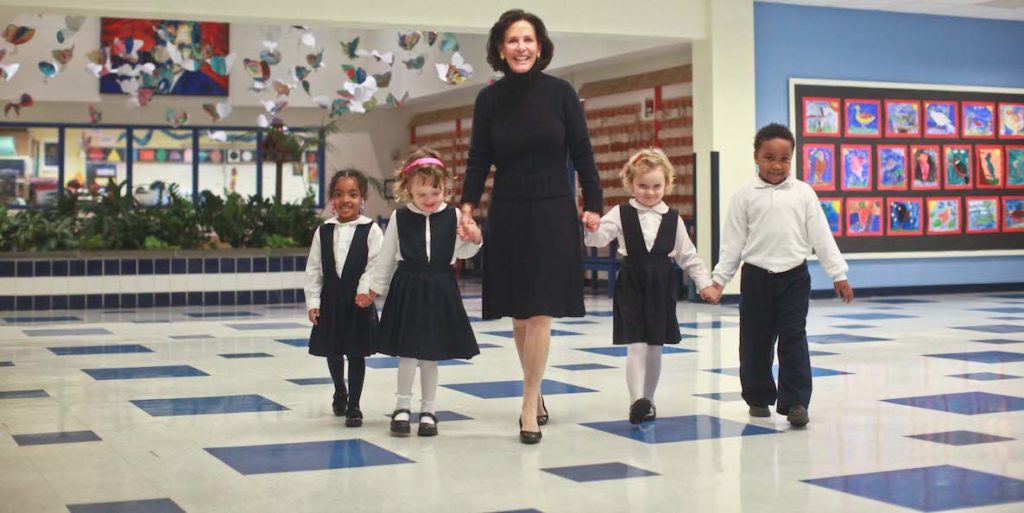As a born-and-raised New Yorker, I’m embarrassed to admit that I had never heard about the horrific murder of Russell Byers, the outspoken, beloved, larger-than-life Philadelphia Daily News columnist who, in 1999, was stabbed to death while on an ice cream run in Chestnut Hill with his wife, Laurada.
So when, in April, my editor wordlessly slid a copy of Wild Wisdom: A Warthog’s Tale, by Laurada Byers, across the table to me at a meeting, my first reaction was an internal groan.
Great, another woman thinking she can write a children’s book.
Then, I read it.
I was alternately brought to tears and laughter, and struck throughout with an overwhelming sense of hope, of being understood. I also felt like a bona fide schmuck for having been so cynical. Because while the 80-page hardcover book may have whimsical safari animals on its cover and throughout, it is not, by any means, a children’s book: It’s an illustrated collection of deeply intimate, decidedly adult, philosophical explorations. As proof, consider these gems:
“Trying to grieve is like being constipated—you’re all scrunched up inside yourself.”
“A lawsuit is not going to make me feel better. Even if I win, I lose.”
“The vagina is not a monologue. It’s improv theatre.”
Organized into six sections—on identity; on purpose; on relationships; on crises; on health; how am I—it’s at once a personal workbook for the author, and a meditation for any reader.
“You know,” says Byers, “if I don’t tell the truth, if there isn’t some truth in this or something meaningful, what’s the point of writing a book?”
Byers, now 70, who founded Russell Byers Charter School in the wake of her husband’s death, doesn’t shy away from revealing her struggles: with Parkinson’s, with anal cancer, with PTSD.
“My sister said to me, ‘Are you sure you want to do this, Laurada?’ I said, ‘Well, you know, if I don’t tell the truth, if there isn’t some truth in this or something meaningful, what’s the point of writing a book?’”
But why write a book at all? For starters, she did it as a thank you to everyone who has helped her since Russell’s death. She also did it in the spirit of his namesake school, which is grounded in the principle of expeditionary learning. “You’re supposed to show evidence of your learning. And so I thought, well, writing a book would be a good way to show evidence of learning, all the things that I had discovered during the last 20 years and what led me to some of those learnings,” she says.
Having traveled to Africa several times, the warthog, she felt, was the perfect metaphor for her basic point: that we all have warts, some are just more visible than others.
“People will say, ‘Laurada you should write a real book.’ First off, I do think this is a real book. And also, [knowing that] people don’t like to read, I thought of doing a graphic memoir that had little snippets of a story but yet had these illustrations which are so divine,” she says. Done by a niece in Pittsburgh, Natalie Hays Stewart, Byers says the illustrations elevate her points. “In other words, the line may be incredibly clichéd, but the picture all of a sudden turns it into something completely different.”
The book is dedicated to her late husband, and to the students of Russell Byers Charter School, who, the inscription reads, “brought me joy at a time of great sorrow by amazing, astounding, and surprising me in all that they do.” Proceeds from the book will go to the school.
Turning to the last page, in tears, I couldn’t help but feel motivated by Byers’ two-pronged bottom line.
“The whole point of the book,” Byers says, “is that you can go through all of this baloney, but if you can get your attitude in order—and of course, we do have the one page that says ‘attitude is everything,’ and I truly believe that—then that’s ok. And then, of course, there’s the last line, which is ‘While looking for peace I found purpose.’”
Everybody has a story, Byers says—I was not the only reporter to start an interview by sharing my own, a phenomenon Byers has become used to and relishes. But whether we let our stories propel us to help others, as Byers has, or not, could just be the underlying and ultimate—and most interesting—question of all.

